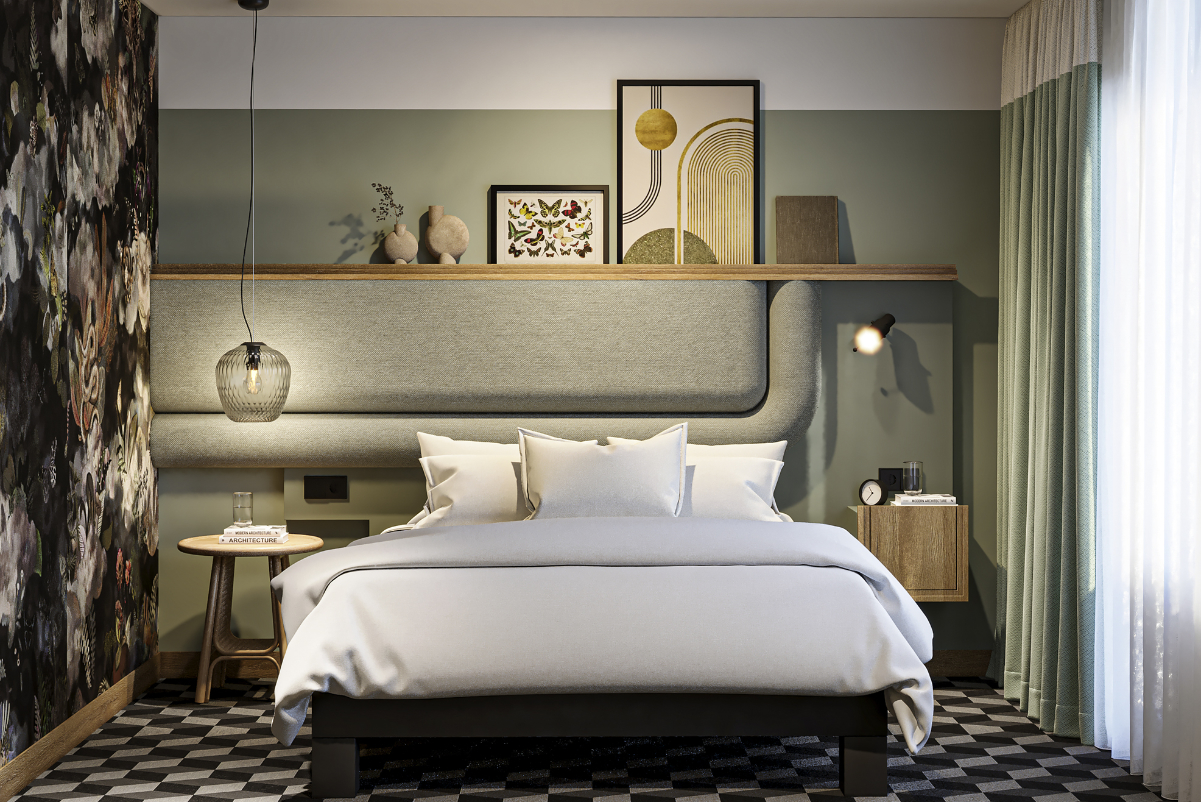Skift Take
Accor executives believe their competitive advantage is becoming more apparent as U.S.-based hotel groups go abroad to expand. They claim to have a more global organizational footprint and a better sense of what hotels need to profit in many non-U.S. markets.
Executives at Accor, Europe’s largest hotel operator with about 5,445 hotels worldwide, envy how U.S.-based hotel operators have consolidated North America. But they argue they have a better sense of the ground game for hospitality in the rest of the world.
Accor’s executives believe that, as the Americans go abroad for growth, they’ll find it hard to compete against Accor’s local footprints, its broader array of more than 40 brands (including Sofitel, Hoxton, and Ibis), and its operational models that they say will be more appealing to local investors.
Accor executives appeared buoyed in their beliefs by their 2022 financial results, released on Thursday, which were slightly better than the year before the pandemic.
In 2022, the Paris-based group generated a net profit of $427 million (€402 million) on revenue of about $4.47 billion (€4.2 billion).
The performance was driven by Accor charging high room rates that, in the second half of the year, were up 12 percent from the pre-crisis level in nearly all regions except for pandemic-plagued China. Revenue was up 4 percent on the pre-crisis level. Rising costs weighed on profit, however. Profit was 13 percent lower than in 2019.
Accor’s management forecasted the company’s rebound would continue in 2023, with full-year revenue per available room — a key industry metric — expected to rise between 5 and 9 percent versus 2022’s level. The company is counting on a revival in international business travel — which were 13 percent below 2019 levels — thanks to China’s reopening.
In 2022, Accor generated $716 million (€675 million) in earnings before interest, taxes, depreciation, and amortization — a measure of profit. That came in above the management’s guidance.
‘Competitive Advantage’
“I’m extremely admiring of the robustness and size and profitability of the U.S. market for hotels,” said Sébastien Bazin, chairman and CEO, in an interview on company strategy before the company released its earnings. “It bounced back [from the pandemic] a year before [Accor], and the margins are better because they control the pricing and are great managers.”
But Bazin said his U.S.-based peers would need to expand internationally to eke out more growth, and they’ll find it’s harder to take share overseas.
“Our competitive advantage is we are very much local,” Bazin said.
One example: Last year, Accor said it won a deal to add 6,000 new hotel keys to Saudi Arabia over three years. In Bazin’s telling, Saudi officials asked him why they should pick Accor.
“I said there’s only one reason, and that it’s that your boss MBS [Mohammed bin Salman Al Saud known informally by his initials MBS] told you to get that project up and running, but today it’s a piece of dirt, I’ve been told,” Bazin said. “Your team will face between 10 and 20 unforeseen events a day on that project. So do you want to hire somebody who has 25,000 people in Saudi today, a couple of hours away, to overcome those unforeseen events? Or do you want to call Bethesda [the city where Marriott International is headquartered]?”
In the Middle East, Europe, and the rest of the world, less than 20 percent of the market is branded, giving a broad opportunity for all the players. But Bazin argued that Accor’s years of learning to cope with regulations, supply chains, and cultural differences in dozens of countries gave it an advantage against “the Americans,” who are used to driving much of their growth within the unified U.S. market.
“The Americans have managed to do a much better job over the last 20 years for one big reason, namely, they work in one currency, one legislation, one territory,” Bazin said. “For me, it’s a mess, with 120-something different provinces with different regulations in Europe alone. But that means we’re better prepared for how to grow in the markets where the future growth is. The only place in which you could probably do [what the Americans did with scalability] again is China. But then you’ll be competing with Chinese operators.”
A Bet on Local, Hybrid Hospitality
Accor executives believe they better understand what hoteliers in smaller, international markets want than their U.S.-based counterparts.
They tout that they have more than 40 brands for owners and developers to choose from — offering a broader array of choices than their peers.
“In terms of alignment, we’re very much aligned on GOP [gross operating profit],” Bazin said, clarifying that Accor charges fees that mainly rise based on performance. “Accor is two-thirds fixed, one-third incentive, which is much greater proportion than the American firms, which is 80/20 at best.”
Many hoteliers at non-luxury properties have considered the food-and-beverage offerings a “necessary evil” because the costs are fixed despite demand varying. Accor increasingly aims — especially with its Ennismore joint venture — to show how it can embed a thriving food-and-beverage offering that appeals to locals and not just guests.
“What my owners want after Covid is to create a buffer so they are less dependent on international travel demand,” Bazin said. “The revolution is how do you rethink a better use of a high-price per square meter property in the middle of a major city where it’s been empty for 30 years between 8:00 in the morning at 8 at night?”
Catering to locals is Accor’s answer.
In Bazin’s vision, many hotels in many locations can become flexible working spaces with amenities that encourage impromptu remote working, which can be either charged for or can offer upselling opportunities with food and beverage. The loyal customer base will help to even out gaps in demand. Catering to locals will also create a buzz to attract out-of-towners by creating “a sense of a place.”
“Travelers will pick that place because they’ll hear it’s trendy,” Bazin said. “Accor is a bit more audacious than the Americans in betting on this.”
Hotel Pipeline
By year-end, Accor passed the 800,000-room mark in its portfolio.
In 2022, the group opened 299 hotels, adding 43,000 rooms and growing its network of properties by 3.2 percent. That pace was below the company’s historical averages. This underperforming dynamic is similar to its peer companies, though Accor is at the lower end of the range for its peers.
Accor has a development pipeline of 216,000 rooms (1,247 hotels), only slightly above 212,000 rooms, the level a year earlier.
Accor Remains in Russia
The French group plans to stay in Russia, executives said in a call with reporters.
Accor, which has closed seven establishments to comply with the sanctions, justified this decision by saying it would be exposed to legal risk in breaking management contracts and because the hotels house international agencies and journalists. Most major Western hotel companies have exited Russia fully.
Have a confidential tip for Skift? Get in touch
Tags: accor, earnings, future of lodging, hotel earnings
Photo credit: Le Splendid Hotel Lac d'Annecy is a member of Accor's new Handwritten Collection. Source: Accor. Accor / Accor

